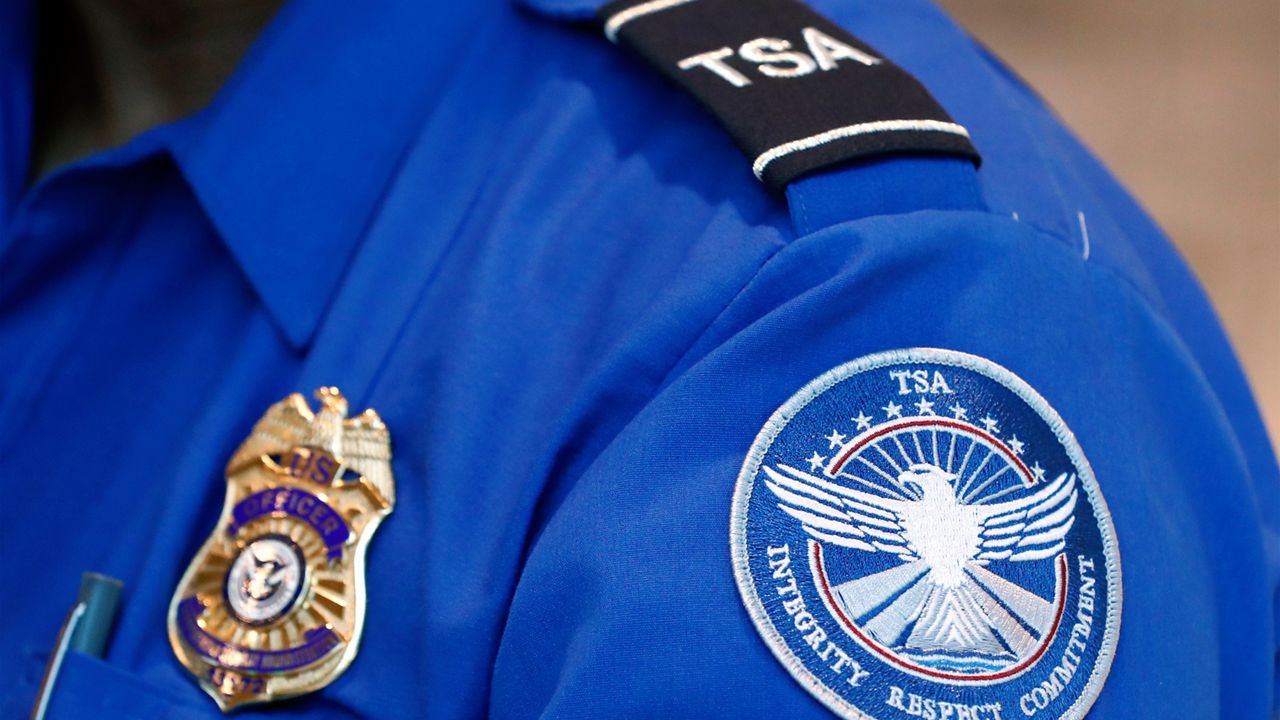As the nation casts a worried eye toward Washington, lawmakers as of Friday still had not reached a budget deal to avoid a shutdown before the deadline of Saturday, Sept. 30.
In Maine, federal workers concerned about making ends meet are holding their breath and crossing their fingers in the hopes that any shutdown won’t last too long.
The last major disruption of this kind began on Dec. 22, 2018, and lasted until Jan. 25, 2019. John Sullivan, 55, an officer with the Transportation Security Administration, remembers it well.
“People were worried, of course, because we weren’t getting paid,” he said.
He and his fellow TSA employees were considered essential workers who needed to report for duty, in his case to Bangor International Airport. Bill Reiley, regional vice president of the American Federation of Government Employees Local 2617, represents TSA workers throughout Maine, and said Sullivan was not alone.
“We got a check, and we got another check for a partial week, and then we got nothing,” he said.
The shutdown lasted for 35 days, and Sullivan said that was long enough to be a real problem for many of his fellow TSA employees. At the time, he and Reiley said, the public started up a food bank for workers at the airport, and local businesses donated gift cards to federal workers.
“They even had problems putting gas in their cars,” Reiley said.
Mark Brewer, chair of the political science department at the University of Maine, noted a shutdown was likely to happen again starting this weekend.
While noting Congress still has time to act, Brewer added, “If I had to guess, I’m guessing it doesn’t get done.”
The blame, he said, lies squarely in the hands of what he called a “relatively small group” of hardline right-wing Republican legislators in the House.
“That’s really where the sticking point lies here,” he said.
This group, which includes many of the so-called Freedom Caucus, won’t compromise with Democrats or even House members within their own party, Brewer said.
“That in and of itself is unusual historically, and I think that tells you a fairly large amount about the state of the Republican party in the United States writ large,” he said. “American parties are always going to have factions within them, but the fractionalization within the GOP right now is pretty intense.”
As to how the shutdown will impact federal workers in Maine, Brewer said each federal department has its own policy about how to handle a shutdown. In many cases, he said, employees will be furloughed, and everything from federal offices to Acadia National Park will have to close.
“Mainers looking to take advantage of federal services, or access information from federal employees that are not mandatory in nature, they’re going to be unable to do so, and that’s going to be a problem,” he said.
Some federal employees, such as Sullivan and TSA workers, will be classified as essential enough that they will be required to work without pay.
“I’m still optimistic it’s really not going to last that long,” Sullivan said.
Denise Nemeth-Greenleaf, AFGE’s, US Navy Caucus Chair, represents Navy workers nationwide, including workers at the Portsmouth Naval Shipyard in Kittery, where she is based. She said workers there will come back to work after the weekend, but the future is uncertain.
“We will all be performing our duties again, but we don’t know when we will get paid for our services,” she said.
Like Sullivan, Nemeth-Greenleaf remains optimistic, but said her fellow workers dread a protracted shutdown like the one in 2018-2019.
“We don’t know when and how many of us will pay our bills,” she said. “For people who are single parents and people who live paycheck to paycheck, that is very difficult.”
Nemeth-Greenleaf noted that it isn’t just about the impact on local families.
“That affects our communities in that we’re not going out to our local shops, we’re not going to our pharmacies and buying snacks, and we’re not going to the local pizza shop and we’re not going to Walmart and buying whatever we might buy there, or Hannaford’s or wherever else we might go,” she said. “It’s not only us that are affected, but our communities are affected as well.”
Reiley said another lasting impact can be employee attrition. The last shutdown, he said, made some brand-new TSA workers question whether they wanted to be federal employees at all anymore.
“They came in and all of a sudden they realized, ‘Well this happens every year. I can’t afford to go through this every year. I don’t like that,’ So they left,” he said.
Sullivan, who will mark 20 years with the TSA in March 2024, said he is trying to reassure younger officers that they will still get a paycheck on Monday, and that they are halfway through a pay period right now. That means, he said, it could take up to a month before the pay disruption will become a real problem.
“I think it’ll be settled by then,” he said.
Another source of comfort, Sullivan said, is a new law, passed after the previous shutdown, that guarantees that federal employees will receive retroactive pay for all the time during the shutdown they went without it.
“That relieves people,” he said.
Nemeth-Greenleaf said the new law is a relief, but she and her fellow workers are still on edge.
“It helps knowing that the pay will eventually come,” she said. “It’s still worrisome not knowing when that will be.”
For her fellow workers, Nemeth-Greenleaf had the following advice: “Hang in there,” she said. “We’re all in this boat together, and hopefully the budget will pass quickly and we will get paid eventually.”









)